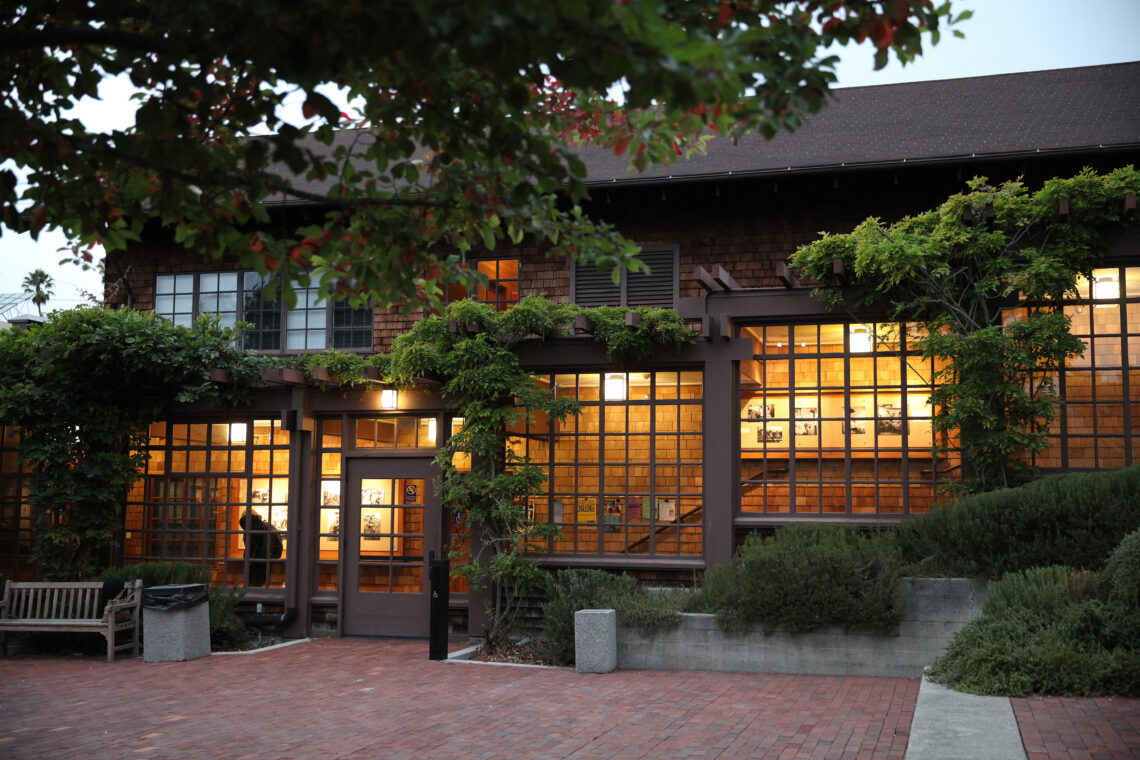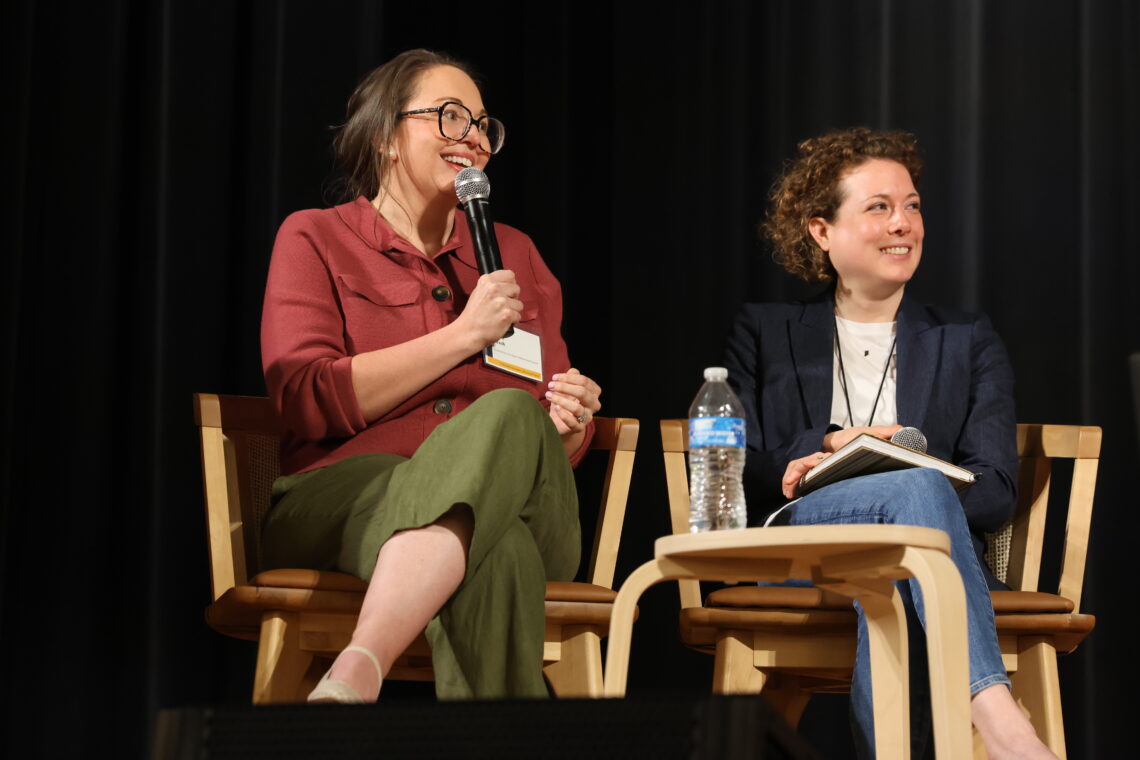
Katey Rusch (’20) and Casey Smith (’20) on stage at the 2025 Reva and David Logan Symposium on Investigative Reporting at UC Berkeley. Photo: Marlena Telvick
UC Berkeley Journalism’s Investigative Reporting Program, multiple alums and a faculty member were honored in the 2025 Pulitzer Prizes announced by Columbia University today. The Pulitzer committee received more than a thousand nominations across 23 categories for awards considered to be among journalism’s top honors.
Alums Katey Rusch (’20) and Casey Smith (’20) and UC Berkeley Journalism’s Investigative Reporting Program were named Pulitzer Prize finalists for local reporting for “Right to Remain Secret,” published in the San Francisco Chronicle.
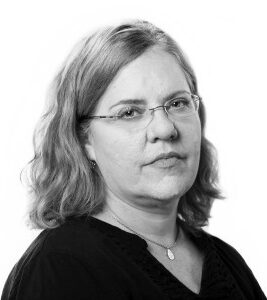
Jennifer LaFleur
Professor Jennifer LaFleur, who leads Berkeley Journalism’s data reporting, is a former senior editor at the Center for Public Integrity, which was named a finalist with Reveal and Mother Jones for explanatory reporting for “40 Acres and a Lie.” Alum Steven Rascón (‘22) was the production manager for the series.
Parker Yesko (’16) and Catherine Winter (’87) were on The New Yorker team that won the Pulitzer Prize in audio reporting for the investigative podcast “In the Dark” about the 2006 US massacre at Haditha.
Susie Neilson (’19), who was also part of the Investigative Reporting Program and specialized in multimedia at Berkeley Journalism, was a finalist for the Pulitzer Prize in national reporting for “Fast and Fatal” about deaths from police car chases, published in The San Francisco Chronicle.
Serginho Roosblad (’18), a reporter on the Associated Press Global Investigations team and Marian Carrasquero (’19) were part of the AP and “Frontline” teams named finalists in investigative reporting for their work on “Lethal Restraint,” a three-year investigation documenting how many people in the U.S. die after police officers use restraint tactics not meant to kill.
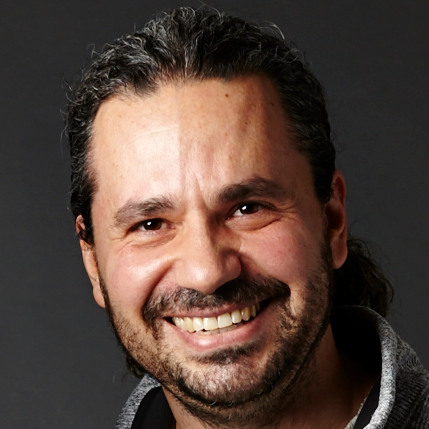
Greg Winter (’00), international managing editor of The New York Times
Greg Winter (’00), international managing editor of The New York Times, was an editor on two Pulitzer Prize winning stories: one for explanatory reporting for the investigation that uncovered a campaign of forced disappearances in Afghanistan and another in international reporting for coverage of the ongoing civil war in Sudan.
Other Pulitzer Prize winning alums from UC Berkeley — outside of Berkeley Journalism — included Sharon Steinmann (B.A. ’98) and Leah Binkovitz (B.A. ’10), part of the Houston Chronicle’s team that won for editorial writing about the dangers and inconveniences of stopped and slow-moving trains. Benjamin Nathans (M.A. ’89, Ph.D. ’95, History) won in General Nonfiction for “To the Success of Our Hopeless Cause: The Many Lives of the Soviet Dissident Movement,” published by Princeton University Press.
‘Right to Remain Secret’ exposes agreements to obscure police misconduct
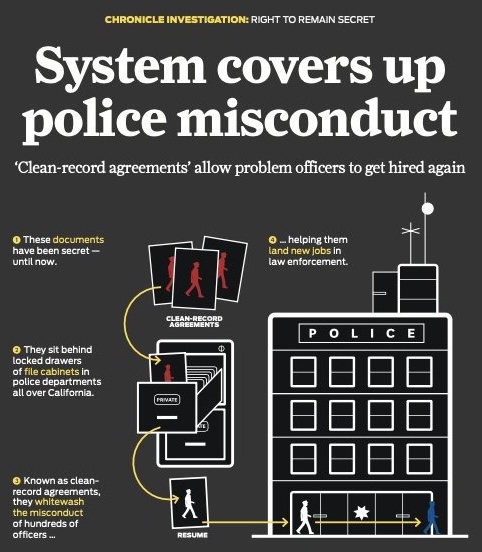
Rusch (’20) and Smith (’20) — also winners of the Polk Award, Selden Ring, Goldsmith Prize, an Investigative Reporters and Editors award and a National Headliner Award — developed “Right to Remain Secret” at UC Berkeley Journalism’s IRP, with the support and mentorship of Professor David Barstow, chair of the Investigative Reporting Program. The story, published in the San Francisco Chronicle, exposes California’s “clean-records” agreements that obscure police misconduct.
“Our students conceived of and doggedly uncovered this story while many in power tried to obfuscate the truth,” said Barstow, the Reva and David Logan Distinguished Chair in Investigative Journalism. “This is investigative journalism at its finest. These next generation investigative reporters are formidable, and we need them more than ever.”
This is the third story developed by and supported at UC Berkeley’s IRP to be honored in the Pulitzer Prizes. In 2004, Professor Lowell Bergman, Barstow (then a leading New York Times investigative reporter), James Sandler (’03) and Berkeley undergraduate student Robin Stein won the Pulitzer Prize for Public Service for “A Dangerous Business: An Investigation into one of America’s Most Hazardous Businesses.” In 2018, Brett Murphy (’16), who also worked with the school’s new media faculty, was a Pulitzer finalist for a nine-part series on port truckers for USA Today.
‘40 Acres and a Lie’ collaboration unearths documents, stories
Berkeley Journalism’s data professor Jennifer LaFleur was the public integrity editor on the three-part series “40 Acres and a Lie.”
The “40 Acres and a Lie” team spent years uncovering the stories of formerly enslaved people who received land under a government program only to have it taken away. Machine learning tools allowed the team to surface key documents from millions of Freedmen Bureau records. The stories, including interviews with descendents of those freemen and women, remind us of a dark history in our country and offer a candid discussion about what is owed.
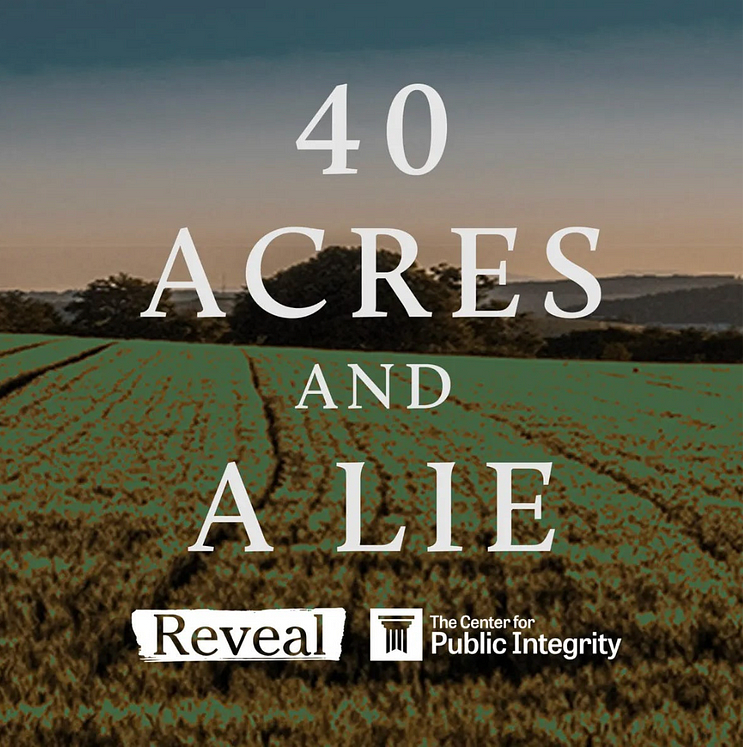
LaFleur said the intensive project was incredibly difficult to complete because many on the reporting team were laid off during the final months of the project.
“I’m grateful to the Center for Public Integrity, Reveal and Mother Jones for making it possible,” LaFleur said. “I hope other journalists and historians use the records to discover more stories.”
The story also won best podcast in The American Society of Magazine Editors awards — also known as the Ellies — and a duPont-Columbia Award in January.
Alums lead high-impact investigations

Parker Yesko (far left) and Catherine Winter (’87) second from right and the “In the Dark” team.
Parker Yesko (‘16) and Catherine Winter (’87) were on the team that won the Pulitzer Prize for Audio Reporting for the third season of The New Yorker’s investigative podcast In the Dark, which examined the 2005 massacre of civilians by US Marines in Haditha, Iraq. Yesko was a research assistant at the Investigative Reporting Program while studying at Berkeley Journalism.
According to an interview with the Freedom of the Press Foundation, Yesko and the investigative team used the Freedom of Information Act to obtain key records including the release of photos of the carnage that the military tried to bury, and helped build a database of 781 possible war crimes committed by the U.S. in Iraq and Afghanistan since 2001.
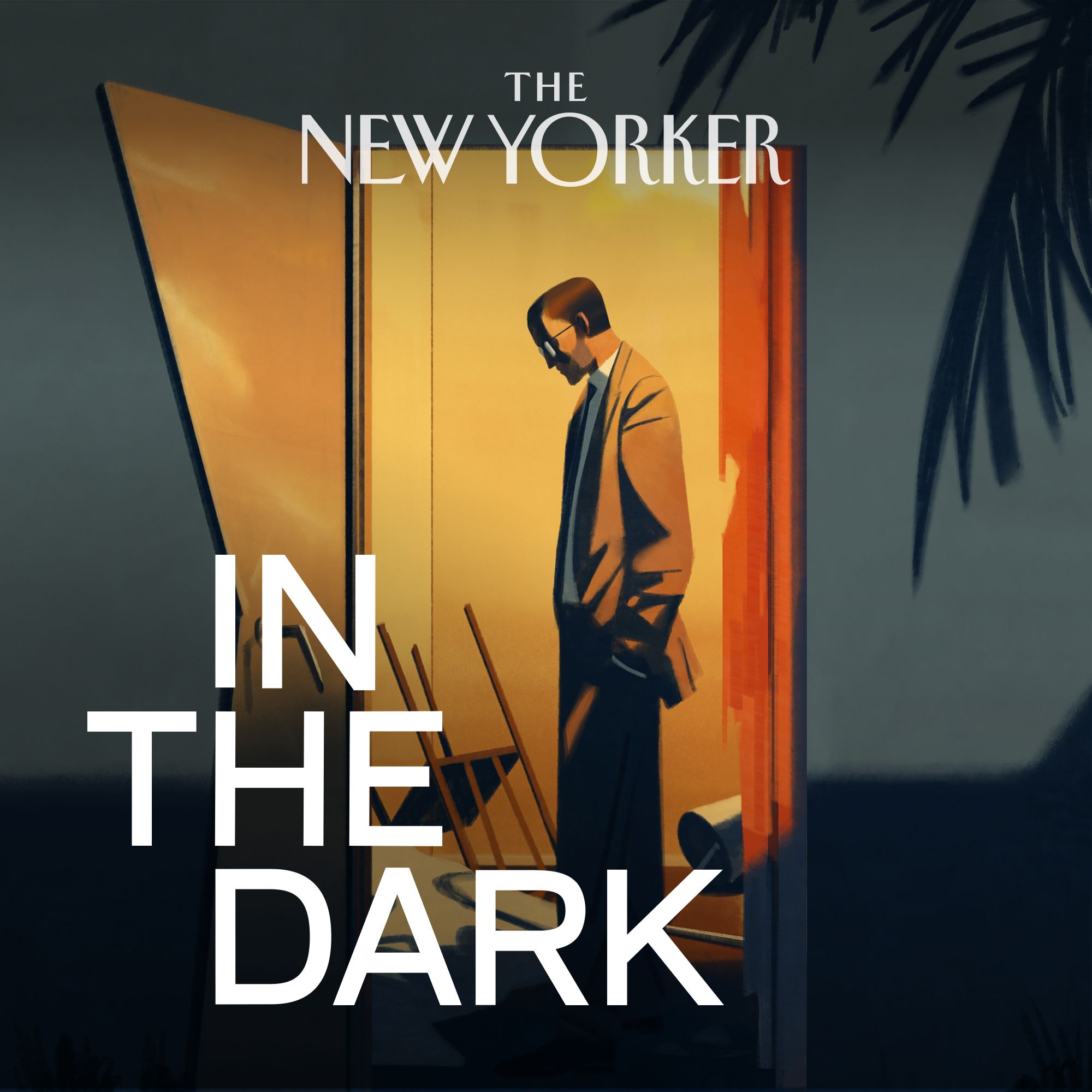
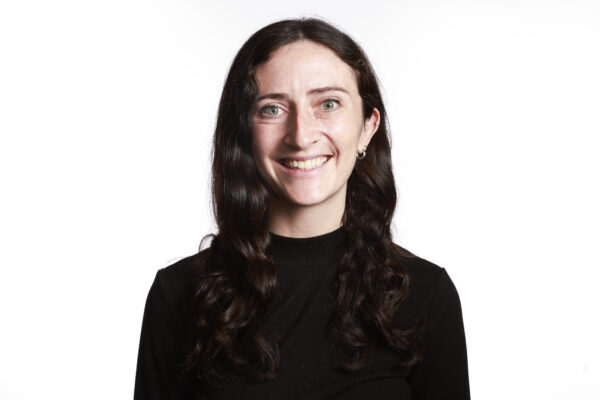
Susie Neilson (’19)
Susie Neilson (’19), an IRP alum who specialized in multimedia journalism at the school was a finalist for the Pulitzer Prize in national reporting after a winning a string of awards for “Fast and Fatal,” a yearlong investigation that found that police pursuits now claim nearly two lives a day across the country, including the 2025 Hillman Prize for Newspaper Journalism and the 2025 IRE Award in Print/Online – Division II and a Sidney Award. Neilson was also a finalist for the Goldsmith Prize for Investigative Reporting and the Online Journalism Awards’ Al Neuharth Innovation in Investigative Journalism Award for the series.
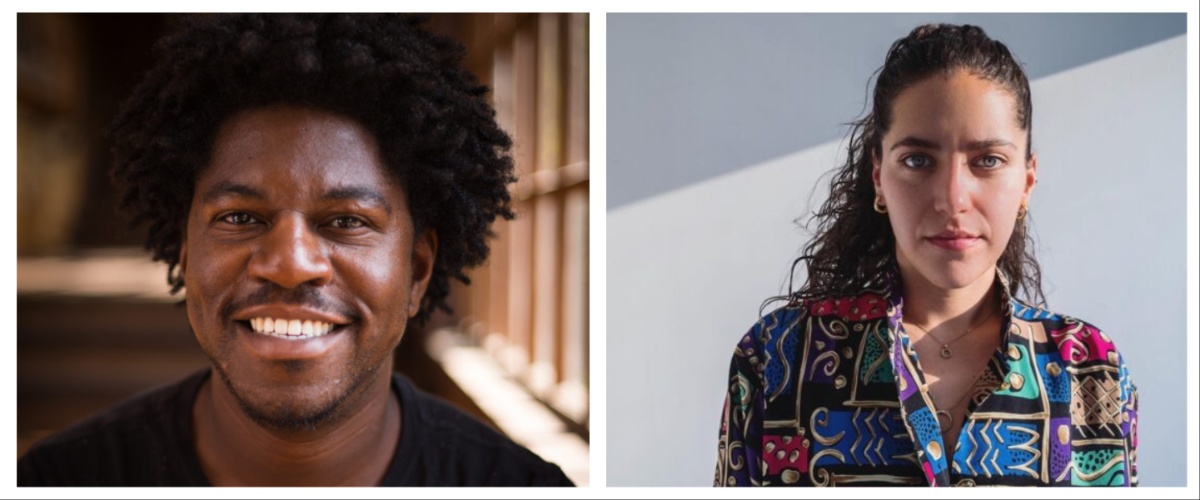
Serginho Roosblad (’18) and Marian Carrasquero (’19).
Serginho Roosblad (’18) a reporter on the Associated Press’s Global Investigations team and Marian Carrasquero (’19) were part of the AP and “Frontline” teams named finalists in investigative reporting for their work on “Lethal Restraint,” a three-year investigation of deaths around the country in which police officers subdued victims with methods intended to be nonlethal. Read our interview with him here.

